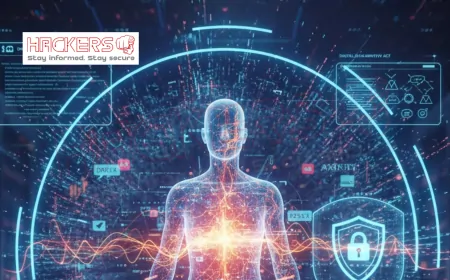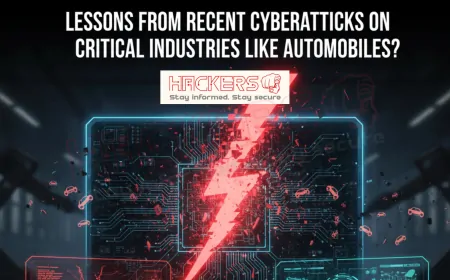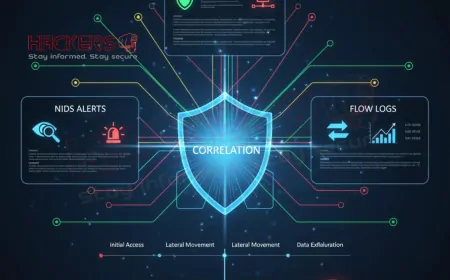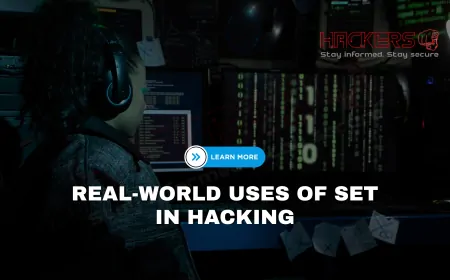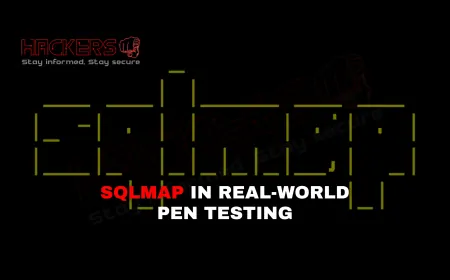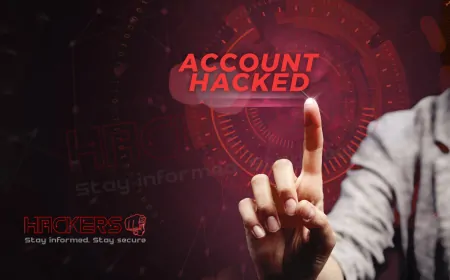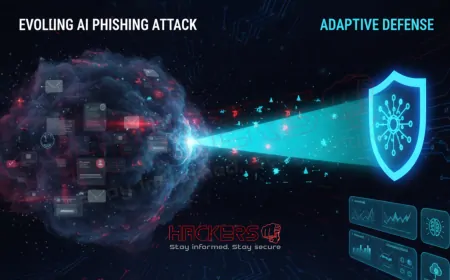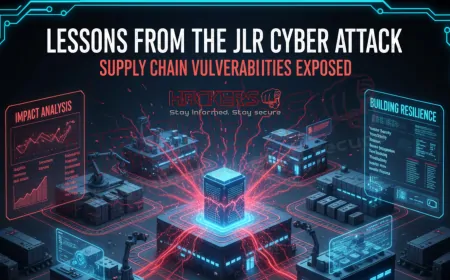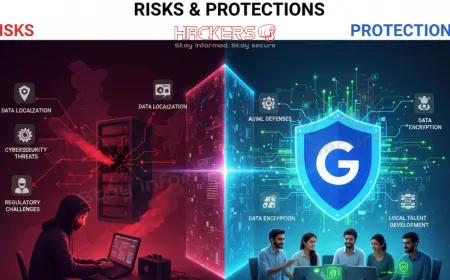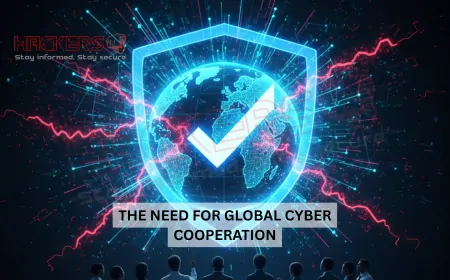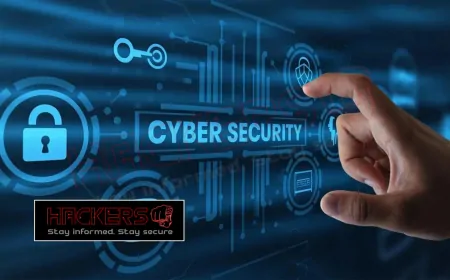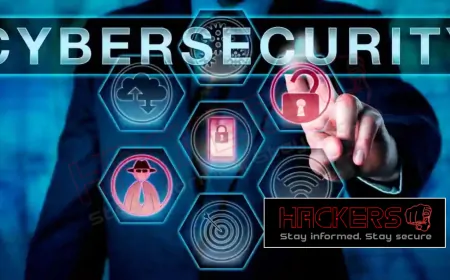Why Is Ethical Hacking Becoming the Coolest Career in Tech?
Imagine a job where you get paid to break into systems, uncover hidden weaknesses, and outsmart digital villains, all while helping protect the world from real threats. Sounds like something from a spy movie, right? Well, welcome to the world of ethical hacking. In 2025, with cyber attacks making headlines daily and companies scrambling to secure their data, ethical hacking has evolved from a niche skill to one of the most exciting and in-demand careers in tech. It's not just about the thrill: it's a role that combines creativity, problem-solving, and a sense of purpose. As global cybercrime costs are projected to hit $10.5 trillion annually this year, the need for skilled professionals who can think like hackers but act like heroes is skyrocketing. This blog explores why ethical hacking is capturing the imagination of tech enthusiasts everywhere, from fresh graduates to career switchers. We'll break it down simply, so even if you're new to the field, you'll see why it's not just a job, but a calling that's as rewarding as it is adventurous.
Table of Contents
- What Is Ethical Hacking?
- The Rise of Cyber Threats
- Job Demand and Opportunities
- Salaries and Perks
- Essential Skills for Ethical Hackers
- Top Certifications to Get Started
- Challenges in the Field
- How to Start Your Ethical Hacking Journey
- Future Trends in Ethical Hacking
- Conclusion
- Frequently Asked Questions
What Is Ethical Hacking?
At its core, ethical hacking is the practice of using hacking techniques to identify vulnerabilities in computer systems, networks, or applications, but with permission and for good reasons. Unlike malicious hackers who steal data or cause harm, ethical hackers, often called white-hat hackers, work to strengthen security. They simulate attacks to find weak spots before the bad guys do. This field is also known as penetration testing or pen testing.
Think of it like this: if your house has a faulty lock, an ethical hacker is the friend who picks it to show you the problem, then helps fix it. They follow strict rules and codes of conduct to ensure their work is legal and beneficial. In 2025, ethical hackers are key players in cybersecurity, working for companies, governments, or as freelancers.
The appeal lies in the variety. One day you might test a bank's website for flaws, the next you could be checking a mobile app for data leaks. It's a career that keeps you on your toes, blending technical skills with ethical decision-making. As one expert notes, ethical hackers must adhere to standards that guide their actions, ensuring they protect rather than exploit. This balance makes it not just a job, but a responsible adventure in tech.
Ethical hacking started gaining traction in the 1990s, but today it's mainstream. With tools like AI making threats smarter, the role has become crucial. Beginners can start by learning basics like how networks work or simple coding, building up to advanced simulations.
The Rise of Cyber Threats
The digital world is booming, but so are the dangers lurking in it. In 2025, cyber threats are more sophisticated than ever, fueled by technologies like AI and machine learning. Hackers use these to create automated attacks that can breach systems in seconds. From ransomware locking up company files to phishing scams tricking people into giving away passwords, the risks are everywhere.
Why does this make ethical hacking cool? Because it's the frontline defense. As cybercrime damages are expected to reach $10.5 trillion this year, businesses need experts who can predict and prevent these issues. Ethical hackers step in to test defenses, much like a coach running drills before a big game.
Recent trends show a spike in attacks on critical infrastructure, like hospitals or power grids. This urgency has elevated ethical hacking from a behind-the-scenes role to a heroic one. Governments worldwide are investing in cybersecurity, creating more jobs and highlighting the field's importance.
For young tech lovers, this means a career where your work directly impacts safety. It's not abstract: stopping a breach could save millions or protect personal data. This real-world relevance is a big draw, turning ethical hacking into a purpose-driven path in tech.
Job Demand and Opportunities
The job market for ethical hackers is exploding. In 2025, there's a massive talent shortage, with projections for hundreds of thousands of unfilled positions in cybersecurity. Ethical hacking roles, like penetration testers or security analysts, are especially sought after. Companies across industries, from finance to healthcare, need these pros to safeguard their assets.
Opportunities aren't limited to big firms. Startups, consulting agencies, and even freelance platforms offer gigs. You could work remotely, testing apps from home, or join a red team that simulates attacks on organizations. The variety keeps things fresh.
Global demand is high too. In places like India, the need for cybersecurity experts is growing fast, with roles in government and private sectors. This international appeal means travel or remote work across borders, adding to the excitement.
What's more, the field welcomes diverse backgrounds. Whether you're a coder, a network whiz, or even a career changer, there's a way in. With training programs and bootcamps, barriers are lower than ever, making it accessible for beginners eager to dive in.
Salaries and Perks
One of the biggest perks of ethical hacking is the paycheck. In 2025, entry-level ethical hackers can earn around $60,000 to $80,000 annually in the US, with experienced pros hitting $120,000 or more. In India, averages range from ₹5 lakh to ₹12 lakh per year for beginners, scaling up to ₹20 lakh or higher with expertise.
But it's not just about money. Perks include flexible hours, remote work options, and continuous learning opportunities. Many companies offer bonuses for finding critical vulnerabilities or certifications. The job's dynamic nature means no two days are the same, reducing burnout.
Plus, there's job security. With cyber threats rising, ethical hackers are indispensable. This stability, combined with high earnings, makes it a smart choice for long-term career growth.
To compare, here's a table showing average salaries for ethical hackers versus other tech roles in 2025:
| Role | Average US Salary | Average India Salary (₹) |
|---|---|---|
| Ethical Hacker | $100,000 | 10-15 lakh |
| Software Developer | $110,000 | 8-12 lakh |
| Data Analyst | $85,000 | 6-10 lakh |
| Network Engineer | $90,000 | 7-11 lakh |
This table highlights how competitive ethical hacking salaries are, often matching or exceeding other tech fields.
Essential Skills for Ethical Hackers
To thrive in ethical hacking, you need a mix of technical and soft skills. Start with basics like understanding networks: how data travels and where vulnerabilities hide. Programming knowledge, especially in languages like Python or C++, helps in scripting tools or analyzing code.
Tools are key too. Learn Nmap for scanning, Wireshark for packet analysis, and Metasploit for exploiting flaws. Operating systems, particularly Linux, are essential since many hacks involve them.
Soft skills matter as well. Research and problem-solving are crucial for finding obscure threats. Communication helps in reporting findings clearly to non-tech folks. Ethical mindset ensures you stay on the right side of the law.
Beginners can build these through online courses or practice labs. It's a field where hands-on experience trumps theory, so experiment safely in virtual environments.
Top Certifications to Get Started
Certifications validate your skills and open doors. In 2025, the Certified Ethical Hacker (CEH) from EC-Council remains a top choice, covering over 550 attack techniques. It's hands-on and respected worldwide.
Offensive Security Certified Professional (OSCP) is advanced, focusing on penetration testing. CompTIA Security+ is great for beginners, building foundational knowledge.
Others include CISSP for broader security and GIAC for specialized roles. These certs boost resumes and often lead to higher pay. Many are available online, with study resources abundant.
Challenges in the Field
Ethical hacking isn't all glamour. Legal constraints limit what you can do, requiring clear permissions. Threats evolve fast, so constant learning is needed to stay ahead.
Stress from high-stakes work can be tough, with long hours during incidents. Ethical dilemmas arise, like deciding how to disclose findings.
Resource limits in smaller firms and the risk of burnout are real. Yet, these challenges build resilience, making successes sweeter.
How to Start Your Ethical Hacking Journey
Ready to jump in? Begin with free resources like TryHackMe or HackTheBox for practice. Take online courses on platforms like Coursera or Udemy.
Build a home lab with virtual machines to test safely. Network on forums like Reddit's r/ethicalhacking. Pursue certifications and internships for real experience.
Start small: learn one skill at a time, like scanning, then build up. Persistence pays off in this rewarding field.
Future Trends in Ethical Hacking
Looking ahead, AI and ML are transforming ethical hacking. They automate tests and predict threats. IoT and cloud security are hot areas as devices multiply.
Quantum computing poses new challenges, requiring fresh defenses. Ethical hackers will lead in these, blending tech with strategy.
The field will grow, with more roles in emerging tech like blockchain. It's an exciting time to enter.
Conclusion
Ethical hacking stands out as the coolest tech career in 2025, blending thrill, purpose, and strong prospects. From combating rising threats to enjoying competitive salaries and diverse opportunities, it's a path that rewards curiosity and ethics. While challenges exist, the skills and certifications available make it accessible. As tech evolves, ethical hackers will remain vital guardians. If you're drawn to problem-solving with impact, this could be your calling. Dive in, learn, and join the fight for a safer digital world.
What is ethical hacking?
Ethical hacking is using hacking skills legally to find and fix security weaknesses in systems.
Why is ethical hacking popular now?
Rising cyber threats and high demand for security experts make it a hot career.
What skills do I need?
Basics like networking, programming, and tools like Nmap are essential.
How much do ethical hackers earn?
Averages range from $60,000 entry-level in the US to over $100,000 with experience.
Is ethical hacking legal?
Yes, when done with permission and following ethical guidelines.
What certifications are best?
CEH, OSCP, and CompTIA Security+ are top choices.
Can beginners enter the field?
Absolutely, with online courses and practice labs.
What are common challenges?
Keeping up with evolving threats and managing stress from high-stakes work.
How does AI affect ethical hacking?
It automates tests and helps predict attacks.
Where can I find jobs?
Companies, governments, and freelance platforms offer opportunities.
Is coding required?
Yes, but start with basics like Python.
What tools do ethical hackers use?
Nmap, Wireshark, and Metasploit are common.
How long to become proficient?
Six months to a year with dedicated practice.
What's the difference from black-hat hacking?
Ethical hackers have permission and aim to protect.
Are there remote jobs?
Many, thanks to digital nature of the work.
What industries hire them?
Finance, healthcare, tech, and government.
Is it a stable career?
Yes, with growing cyber threats ensuring demand.
How to practice safely?
Use virtual labs like HackTheBox.
What's the future like?
Bright, with roles in AI and IoT security.
Why is it cool?
It combines adventure, impact, and tech innovation.
What's Your Reaction?










